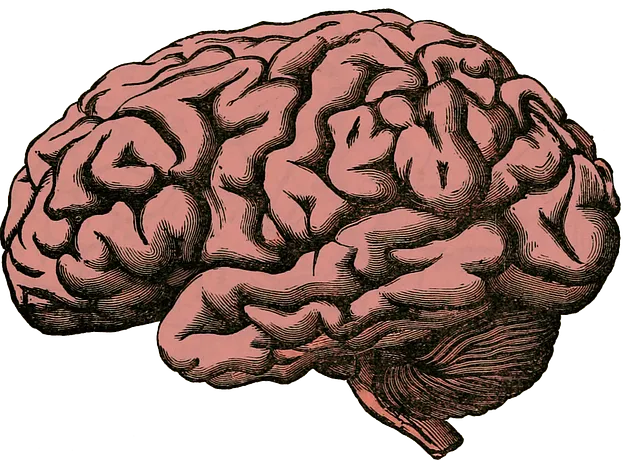The Kaiser Permanente behavioral health center in Longmont prioritizes understanding community needs for effective outreach. By assessing local challenges, like mental health issues among teens and low-income families, they tailor services like Social Skills Training and Depression Prevention workshops. Their programs foster self-esteem, belonging, and empowerment through resilience building and self-care routines. Strategic planning, including tailored workshops and diverse learning Mental Health Education Programs, ensures impactful outreach. Measuring KPIs like workshop attendance helps guide continuous improvement. This data-driven approach inspires other organizations to enhance community well-being in Longmont through effective conflict resolution and engagement strategies.
Community outreach programs play a pivotal role in enhancing access to healthcare services, especially in diverse communities. This article explores strategies for implementing successful initiatives, focusing on the Kaiser Permanente Behavioral Health Center in Longmont as a model resource hub. We delve into understanding community needs, effective program implementation techniques, and measuring impact. By examining these aspects, we highlight how organizations like Kaiser Permanente can foster continuous improvement, positively influencing local well-being.
- Understanding Community Needs: A Foundation for Effective Outreach
- Kaiser Permanente Behavioral Health Center Longmont: A Resource Hub
- Strategies for Successful Program Implementation
- Measuring Impact and Fostering Continuous Improvement
Understanding Community Needs: A Foundation for Effective Outreach

Understanding Community Needs is a fundamental step in designing effective outreach programs, especially at facilities like the Kaiser Permanente behavioral health center in Longmont. By engaging with the community and assessing their unique challenges, centers can tailor services to address pressing issues. This may include identifying populations at higher risk for mental health disorders, such as adolescents or low-income families, and developing targeted initiatives. For example, implementing Social Skills Training programs can help build resilience among youth, while Depression Prevention workshops cater to adults seeking coping mechanisms.
Furthermore, community outreach goes beyond addressing specific issues; it’s about fostering a sense of belonging and empowerment. Initiatives aimed at Self-Esteem Improvement, for instance, can enhance individuals’ confidence and overall well-being. By understanding the diverse needs within the Longmont community, the Kaiser Permanente behavioral health center can offer comprehensive support, ensuring that services are accessible, culturally sensitive, and make a meaningful impact on the lives of those they serve.
Kaiser Permanente Behavioral Health Center Longmont: A Resource Hub

The Kaiser Permanente Behavioral Health Center in Longmont stands as a beacon of hope and support for the community’s mental health needs. This resource hub offers a comprehensive range of services aimed at enhancing well-being and fostering resilience. Beyond traditional therapy, the center emphasizes the importance of resilience building and self-care routine development for better mental health. By providing various programs and workshops, residents gain practical strategies to navigate life’s challenges, promoting both individual and collective empathy building. Through these initiatives, the Kaiser Permanente Behavioral Health Center Longmont is not just a treatment center but a community space dedicated to empowering individuals with tools for lasting mental wellness.
Strategies for Successful Program Implementation

Implementing a community outreach program requires careful planning and strategic execution to ensure its success. For organizations like the Kaiser Permanente behavioral health center in Longmont, tailoring initiatives to meet the unique needs of the target population is key. One effective approach is offering Stress Management Workshops Organization designed to equip individuals with coping mechanisms for everyday challenges. These interactive sessions can foster a sense of community and encourage open discussions on mental health, thereby promoting Emotional Well-being Promotion Techniques.
Additionally, designing Mental Health Education Programs that cater to diverse learning styles and cultural backgrounds is essential. By incorporating engaging activities, workshops, and resources, the Kaiser Permanente behavioral health center in Longmont can effectively reach and educate community members, empowering them with knowledge about mental health and encouraging early intervention and treatment-seeking behaviors.
Measuring Impact and Fostering Continuous Improvement

Measuring the impact of community outreach programs is a critical step for organizations like Kaiser Permanente behavioral health centers in Longmont. By evaluating success through key performance indicators (KPIs), the center can identify what’s working and where improvements are needed. This data-driven approach ensures resources are allocated effectively, allowing for targeted adjustments to outreach strategies. For example, tracking attendance at Stress Management Workshops or participation in Empathy Building Strategies could reveal the level of community engagement and interest in these services.
Regularly assessing outcomes also fosters a culture of continuous improvement within the center. It encourages staff to innovate and adapt their approaches based on community feedback and changing needs. Additionally, sharing success stories and lessons learned can inspire other organizations to adopt similar initiatives, ultimately enhancing the overall well-being of the Longmont community through effective Conflict Resolution Techniques and community engagement strategies.
Community outreach programs, as exemplified by the successful model at the Kaiser Permanente Behavioral Health Center Longmont, are crucial in addressing the diverse needs of communities. By understanding local requirements and employing strategic implementation methods, organizations like Kaiser Permanente can create a sustainable impact. Measuring outcomes and encouraging continuous improvement ensures that these initiatives remain relevant and effective over time, fostering healthier and more connected communities. This comprehensive approach not only enhances access to essential services but also builds a robust support system for the well-being of all residents.






